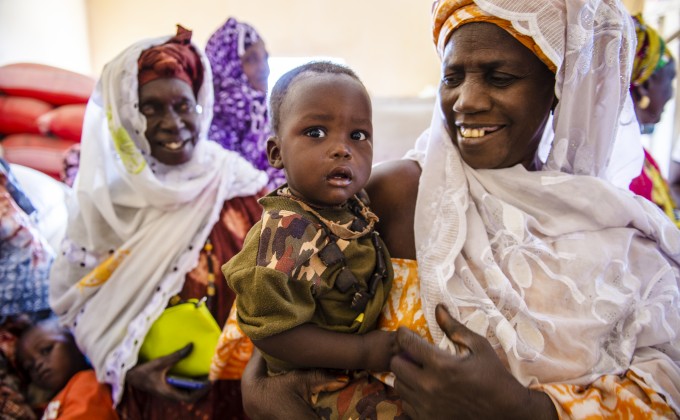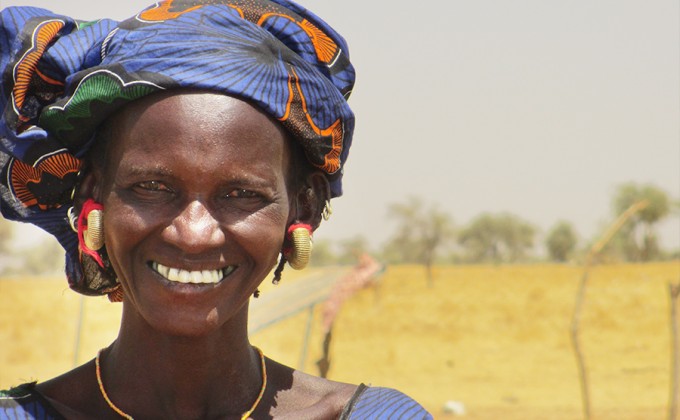

Letter shared by CECI-Senegal
Humanity has always experienced conflicts related to social, economic and political inequalities leading countries into endless cycles of violence. For this reason, States have always looked and continue to look for solutions to eradicate or reduce the violence that weakens and saps economic growth and social cohesion in many countries. Concerned about the negative impacts of this violence, States come together around programs to take steps to create peace and security in the world and thereby protect women and girls, who are the most vulnerable.
It is generally agreed that conflict has the greatest impact on women and girls. Their social status and their gender make them vulnerable to rape, sexual assault, sexual slavery, forced sterilization and other abuses.
This is one of the reasons Women’s Voice and Leadership in Senegal (WVL – Senegal), with financial support from the Government of Canada through Global Affairs Canada, supports women’s and girls’ rights organizations and networks in Senegal.
The WVL - Senegal project aims to support organizations and networks promoting women’s and girls’ rights. It strengthens their operations, increases the scope and quality of their services, and builds their capacity for social monitoring and advocacy. The ultimate goal of the project is for women and girls in Senegal to fully avail themselves of their rights, and to advance gender equality in the country.
For WVL-Senegal, the theme instituted this year by the United Nations, Recovering better for an equitable and sustainable world, is of capital importance because peace is the crucial vector for ensuring women’s and girls’ development, as well as sustainable development. That is why it is increasingly necessary for States to put into place mechanisms to promote peace. Societies must promote a culture of peace in the world by focussing on raising awareness, dialogue and advocacy. We also need to create effective institutions, and invest in peace education and gender equality—because both men and women can wage this battle to achieve lasting peace. It is in the spirit of men and women working together that the idea of peace must built.
Indeed, the UNESCO Constitution, signed in 1945, declares that: “since wars begin in the minds of men, it is in the minds of men that the defense of peace must be constructed.” Peace, the cornerstone of living together, is one of the 17 Sustainable Development Goals (SDGs) adopted by the United Nations in its 2030 Agenda, with the ultimate objective of eradicating poverty, protecting the planet and guaranteeing prosperity for all.
To attain this goal, WVL-Senegal is working with its 25 partner organizations by strengthening their organizational operations, increasing the scope and quality of their services, consolidating their capacity for social monitoring and advocacy so that women’s voices are heard, and increasing women’s influence over the laws and policies that affect them.
As defined by the United Nations General Assembly on January 15, 1998, peace is “the values, attitudes and behaviours […] that reject violence and endeavour to prevent conflicts by tackling their root causes to solve problems through dialogue and negotiation […] ''
Consequently, in order to live together in solidarity, peace must underpin the various processes undertaken by international, regional and national human right organizations. In other words, peace is vital for a sustainable development approach because “it consists of acquiring values and knowledge, and developing attitudes and behaviours to live in harmony with oneself, with others, and with the natural environment.” Women have a preponderant role to play in this process because “the woman is the symbol of resilience, and the keeper of peace,” says Marième Alpha Sy Dia, President of Convergence des femmes universitaires, which seeks to improve the conditions and representativity of young women in universities.
Today, we urgently need peace education based, on the one hand, on training responsible citizens open to different cultures and able to appreciate the value of freedom and respect for human dignity and differences and, on the other, on an active culture of peace rooted in moral and human qualities such as tolerance, listening, communication, gender analysis, social responsibility, critical thinking, cooperation, etc. Beyond this, citizens must employ action strategies that promote peace through the introduction of equitable justice for all citizens and support for organizations that work for peace (national and international associations and NGOs, etc.). This has been underlined through women’s voices in the region of Tambacounda, represented by the President of the Comité consultatif des femmes (CCF-Tamba), Traoré Haby Coulibaly, who underscored that “peace is at the heart of development.”
To conclude, peace is an ideal all of humanity should aspire to, it is a behaviour that we must adopt each and every day. Not only in order to stabilize regions ravaged by conflict, but also to attain an equitable and sustainable world.
Humanity must be able to live in a world of peace and security, one created through human caring, consideration for others, respect for others, equality among all, and equitable relationships. Therefore, it is important to bring all of these forces together into a shared ideal known as SOCIAL SOLIDARITY, in which all societies come together in their diversity, guaranteeing equal access to jobs and economic freedom in a climate of tolerance and peaceful coexistence, for the wellbeing of individuals and society.
Diémé Dieynaba,
Member, Collège des jeunes du WILDAF-Sénégal
WILDAF-Senegal is a partner organization of CECI's VLF-Senegal project
